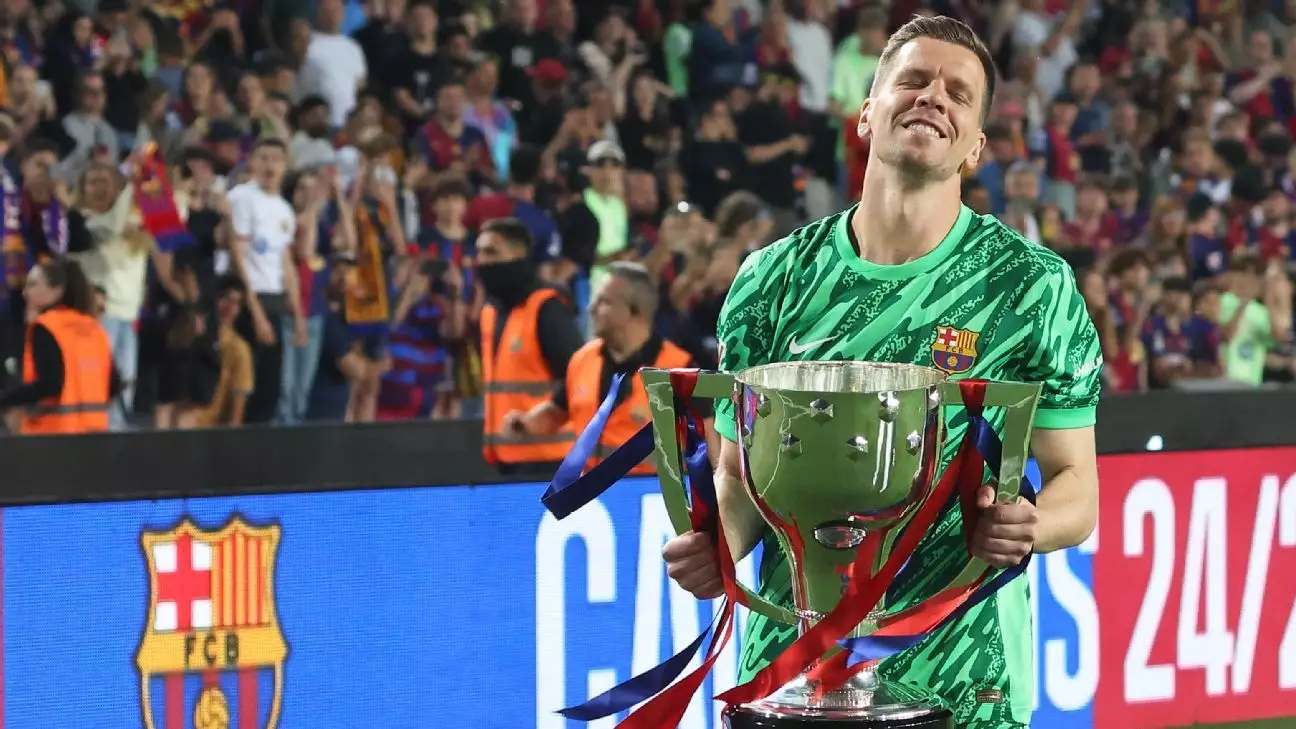Wojciech Szczęsny’s journey with Barcelona exemplifies resilience and the power of strategic perseverance. After years of fluctuating fortunes, the veteran goalkeeper’s decision to rejoin the club on a two-year contract signals more than just a renewal—it’s a testament to his unwavering commitment to excellence. His late career resurgence underscores the importance of adaptability and mental toughness, especially for athletes navigating the twilight of their professional lives. Szczęsny’s willingness to come out of retirement and accept a pivotal role reflects an ideological shift—prioritizing impact over prestige, and experience over youth. His persistence serves as a compelling narrative for aspiring professionals, emphasizing that perseverance often outweighs early promise.
A Balancing Act: Competition and Strategic Team Building
Barcelona’s goalkeeper situation encapsulates a complex interplay of talent, ambition, and strategic planning. The club’s recent acquisitions, including Joan García and the continued presence of Marc-André ter Stegen, highlight a nuanced approach to squad development. Szczęsny’s impending extension, however, raises questions about team dynamics and long-term planning. Is the club striving for stability in a fiercely competitive environment? Or are they hedging their bets amidst ongoing managerial and structural uncertainties? Szczęsny’s role, initially forged out of necessity due to Ter Stegen’s injury, has evolved into a symbol of dependability and experience. Yet, the club’s openness to offloading Ter Stegen underscores a willingness to recalibrate and adapt in pursuit of future success. Szczęsny’s leadership and professionalism can act as a bridge in this transitional phase, provided the club maintains clarity in its strategic vision.
The Human Side of a Goalkeeper’s Journey
Beyond the pitch, Szczęsny offers a candid glimpse into the human side of professional sports. His frankness about smoking and his approachable personality have endeared him to fans, making him more than just a goalkeeper—he’s a relatable figure embodying honesty and humility. His openness exemplifies how athletes can leverage authenticity to build genuine connections with supporters, often translating into increased trust and loyalty. For Szczęsny, football isn’t merely a career but a lifestyle that involves balancing personal habits with professional expectations. His public conversations about lifestyle choices foster a broader dialogue about athlete well-being and authenticity, challenging stereotypes and encouraging open-mindedness.
Implications for Future Leadership and Legacy
Szczęsny’s career trajectory invites reflection on legacy-building within elite sports. Rather than merely chasing records or titles, he demonstrates that longevity and resilience are equally valuable. His influence extends beyond the game—serving as a mentor for younger players and a symbol of determination for fans. As he prepares to fortify his position in Barcelona’s goalkeeping hierarchy, his role may transcend that of just a stopper; he could become a pivotal figure guiding squad culture and leadership. His story underscores that true greatness in sports often hinges on the ability to adapt, lead ethically, and inspire through perseverance—a lesson that resonates deeply within the competitive corridors of football.

